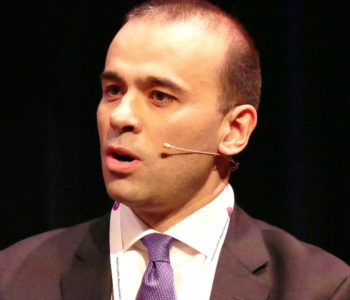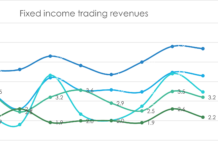By Joel Clark.
Market participants and technology providers must focus their intelligence and resources on developing robust transaction cost analysis (TCA) for fixed income, in spite of the challenges that may be encountered in extracting reliable data for analysis, according to speakers at the Fixed Income Leaders’ Summit in Amsterdam.
Following the 3 January 2018 implementation of MiFID II, which raised the bar on best execution and demanded that investment firms take all sufficient steps to obtain the best possible result for their clients, there has been increased industry focus on replicating effective TCA services that have existed for many years in equity markets.

“TCA has not been as embraced in the fixed income space as it has been outside,” said Daniel Mayston, head of market structure and electronic trading in EMEA at BlackRock. “We know TCA is not perfect in fixed income, but we also cannot take shortages in data quality as an excuse not to do it. TCA has a role to play in best execution, so now is the time to dedicate time to it and embed this in our investment and trading processes.”
But fixed income TCA should not be seen solely as a MiFID II compliance exercise, Mayston added, as it has the potential to yield significant benefits for portfolio managers and traders, if done properly. While sourcing data may be more challenging in fixed income than in equities, given market fragmentation and the diversity of products, TCA providers have been applying themselves to fixed income in recent years.

Ruben Costa-Santos, head of FX at ITG, acknowledged that fixed income TCA is not yet at a stage where all of clients’ requirements can be easily fulfilled, often because the relevant data is not always available. But the discipline is evolving quickly and the analysis will become more sophisticated in time, he said.
“The challenge with TCA is sometimes there is a search for a single benchmark that will solve the problem – one measurement that tells you the quality of the execution. That’s a false error, because – particularly in fixed income – you have a variety of execution styles and instruments, and you have to apply different metrics,” said Costa-Santos.
As this space evolves, market participants must continue to deal with an environment in which data is proliferating, but the quality of that data is not improving at the speed needed to facilitate reliable analysis. This situation is made more challenging by the number of data providers now operating under MiFID II without standardisation.

“What happened over the last year is a lot of data providers popped up out of nowhere providing trade data – they source it from somewhere, repackage it and sell it somewhere,” warned Erik Tham, head of private banking for Benelux and Switzerland at MarketAxess. “As long as we don’t have consolidation and consistency within this data, there is a very high risk that every new data source will duplicate data you already have.”
Data duplication and inconsistency is a particular concern, added Mayston, and the top priority for both industry and regulators should be to address data quality and standardisation so that TCA is based on accurate and reliable input data.
“To be smarter you need good data and you need insights and analytics based on that data,” said Mayston. “If data is duplicated, or if everyone follows different conventions, then you risk either not understanding what you get at the end or you risk ‘garbage in, garbage out’ scenarios.”
©Markets Media Europe 2025







